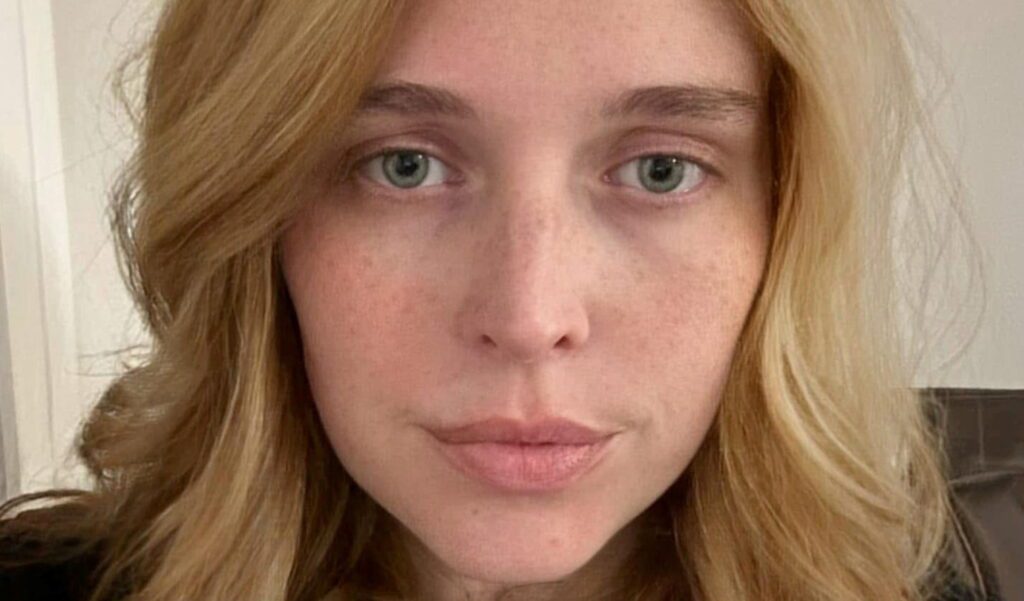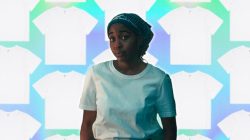A Mother’s Struggle with OCD and Germaphobia
Devin Clifton, a 39-year-old mother of two from Clermont, Florida, has lived with obsessive-compulsive disorder (OCD) for much of her life. Her condition, which began as a heightened sense of vigilance, eventually evolved into a severe fear of germs that has drastically impacted her daily routine and family life.
Devin’s journey started in childhood when she developed a hyper-vigilant mindset. She recalls growing up in an environment where her mother struggled with mental health issues, often making superficial suicide attempts. This constant state of alertness became her norm. “I was always on the lookout for what might set her off,” she said. “It was exhausting, but it was my reality.”
Her fears intensified when her son contracted mono at just three years old. Despite doctors dismissing her concerns, Devin felt an overwhelming sense of guilt and helplessness. “I remember carrying his lifeless body to the pediatrician’s office without an appointment,” she shared. “The doctor took one look and said he needed to be admitted immediately.”
This experience marked the beginning of her germaphobia. What started as wiping down groceries or avoiding communal surfaces soon escalated into extreme precautions. Today, she uses hospital-grade disinfectants to clean all surfaces in her home and soaks all produce in a water-vinegar solution for 20 minutes. She even checks the temperature of every meal to ensure it is cooked properly.
Devin’s obsession with safety has led her to isolate herself from the outside world. She rarely leaves her house, avoids visitors, and only drives around her neighborhood. “The feeling of safety and security is addicting,” she admitted. “But it’s also exhausting.”
Her condition has taken a toll on her family. She checks her children’s temperatures up to 100 times a day and asks them every 15 minutes how they feel. “They’ve learned to tolerate my behavior, but I know it’s not easy for them,” she said. “They see how badly I’m affected, and it’s heartbreaking.”
During the COVID-19 pandemic, Devin found some relief. “Everyone was focused on germs and prevention. I wasn’t alone anymore,” she explained. However, as restrictions eased, she struggled to adjust. “I became addicted to that feeling of safety and security. Now, I barely leave the house.”
Devin also experiences intrusive thoughts and rituals. For example, if she hears or thinks about the theme song from Friends, she feels compelled to clap four times. “It’s involuntary,” she said. “I can’t not do it, even though it feels ridiculous.”
With norovirus spreading across the country, her fears have reached new heights. She has created a quarantine area in her home, complete with goggles, a mask, gloves, and a PCR test machine imported from Germany. “It’s exhausting, and I hate myself for it,” she admitted. “I’m so sick of being this way and keeping my family imprisoned.”
Despite the challenges, Devin has found moments of strength. In 2022, she graduated with an associate’s degree and was chosen as a commencement speaker—a rare venture outside her home. “It was the scariest moment of the pandemic for me,” she recalled. “I wore an N95 mask taped to my face with surgical tape and didn’t eat or drink anything all day.”
She also discovered a passion for art, creating paintings that have drawn attention from researchers who believe she may have sudden savant syndrome. “They think my OCD and artistic ability are connected,” she said. “But I couldn’t bring myself to get any imaging done.”
Treatment has been a difficult path. While cognitive behavioral therapy and exposure and response prevention have been tried, progress has been slow. “I’m not just afraid for myself—I’m afraid for my kids,” she said. “If I catch something and bring it home, and they die, it’ll be my fault.”
However, Devin has found hope in a new medication called Luvox, an SSRI used to treat OCD. “If I could go back to the phase where I was just using some extra hand sanitizer or opening doors with a tissue, I’d be able to live again,” she said. “But it’s hard to even imagine a life beyond this.”







